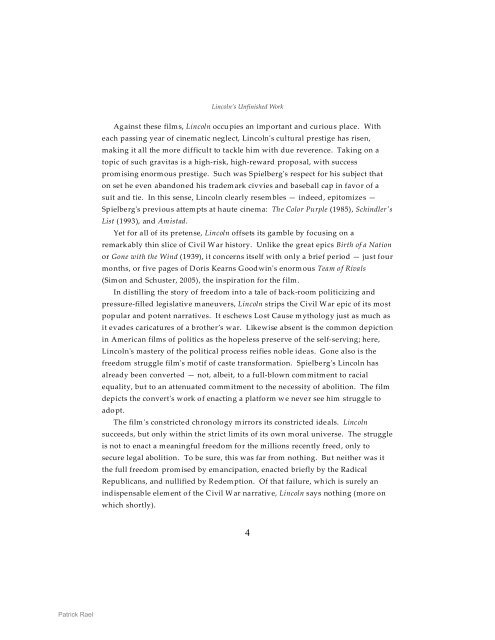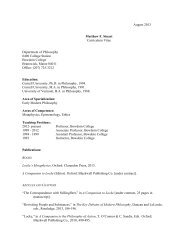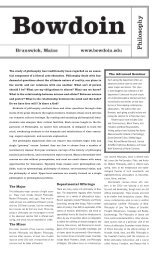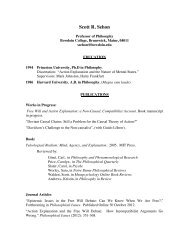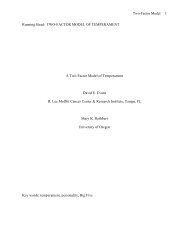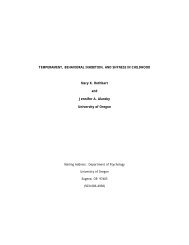Lincoln's Unfinished Work - Bowdoin College
Lincoln's Unfinished Work - Bowdoin College
Lincoln's Unfinished Work - Bowdoin College
You also want an ePaper? Increase the reach of your titles
YUMPU automatically turns print PDFs into web optimized ePapers that Google loves.
Lincoln’s <strong>Unfinished</strong> <strong>Work</strong><br />
Against these films, Lincoln occupies an important and curious place. With<br />
each passing year of cinematic neglect, <strong>Lincoln's</strong> cultural prestige has risen,<br />
making it all the more difficult to tackle him with due reverence. Taking on a<br />
topic of such gravitas is a high-risk, high-reward proposal, with success<br />
promising enormous prestige. Such was Spielberg's respect for his subject that<br />
on set he even abandoned his trademark civvies and baseball cap in favor of a<br />
suit and tie. In this sense, Lincoln clearly resembles — indeed, epitomizes —<br />
Spielberg's previous attempts at haute cinema: The Color Purple (1985), Schindler's<br />
List (1993), and Amistad.<br />
Yet for all of its pretense, Lincoln offsets its gamble by focusing on a<br />
remarkably thin slice of Civil War history. Unlike the great epics Birth of a Nation<br />
or Gone with the Wind (1939), it concerns itself with only a brief period — just four<br />
months, or five pages of Doris Kearns Goodwin's enormous Team of Rivals<br />
(Simon and Schuster, 2005), the inspiration for the film.<br />
In distilling the story of freedom into a tale of back-room politicizing and<br />
pressure-filled legislative maneuvers, Lincoln strips the Civil War epic of its most<br />
popular and potent narratives. It eschews Lost Cause mythology just as much as<br />
it evades caricatures of a brother’s war. Likewise absent is the common depiction<br />
in American films of politics as the hopeless preserve of the self-serving; here,<br />
<strong>Lincoln's</strong> mastery of the political process reifies noble ideas. Gone also is the<br />
freedom struggle film's motif of caste transformation. Spielberg's Lincoln has<br />
already been converted — not, albeit, to a full-blown commitment to racial<br />
equality, but to an attenuated commitment to the necessity of abolition. The film<br />
depicts the convert's work of enacting a platform we never see him struggle to<br />
adopt.<br />
The film's constricted chronology mirrors its constricted ideals. Lincoln<br />
succeeds, but only within the strict limits of its own moral universe. The struggle<br />
is not to enact a meaningful freedom for the millions recently freed, only to<br />
secure legal abolition. To be sure, this was far from nothing. But neither was it<br />
the full freedom promised by emancipation, enacted briefly by the Radical<br />
Republicans, and nullified by Redemption. Of that failure, which is surely an<br />
indispensable element of the Civil War narrative, Lincoln says nothing (more on<br />
which shortly).<br />
4<br />
Patrick Rael


